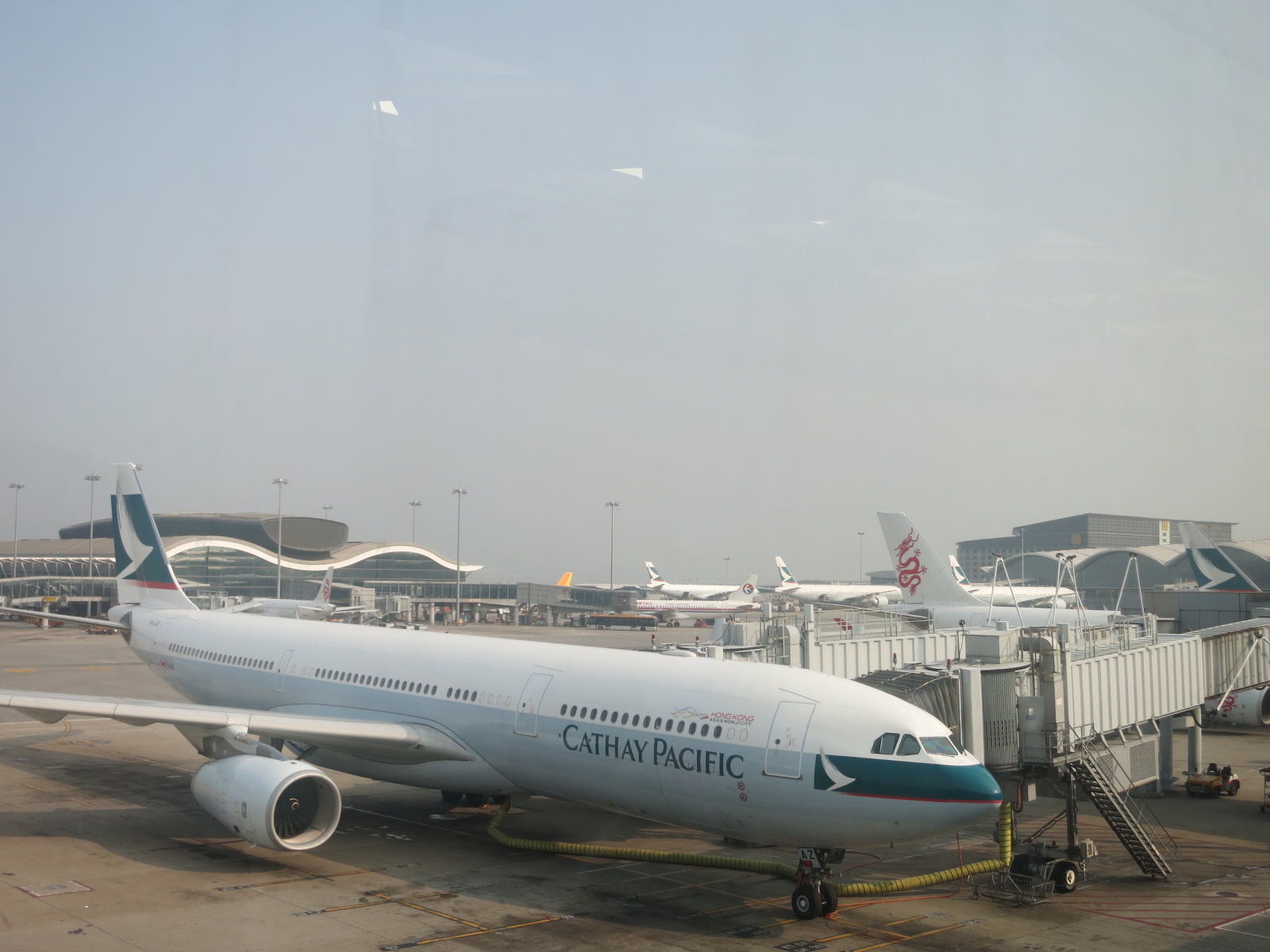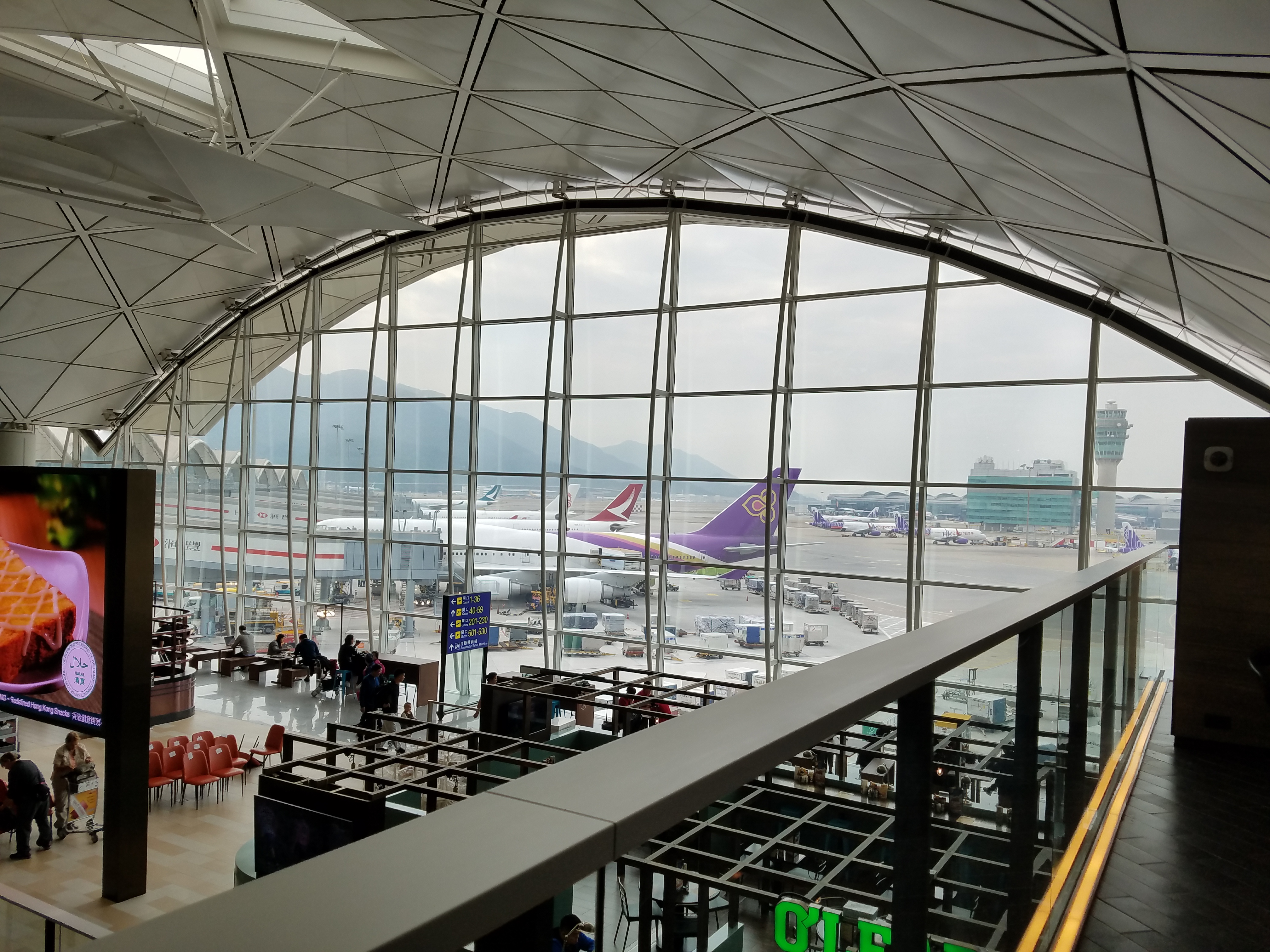Cathay Pacific is buying back the 9.57% stake in the Hong Kong-based carrier that’s owned by Qatar Airways for HK$6.97bn ($896 million, and about a 3.9% discount to the stock’s prior close).
- Qatar acquired the ownership interest in 2017, and no reason was given for the exit.
- By cancelling these shares, Swire Pacific will own 47.7% of Cathay Pacific, and Air China’s stake will be 31.8%.

My first thought with a state actor (Qatar) divesting its stake in what’s increasingly become a Chinese state-controlled carrier is that this is geopolitical. And there are certainly forces at work in the background there. But I’m struggling to find a strong narrative.
Cathay has been tidying its capital structure since it bought back the Hong Kong government’s pandemic warrants and preference shares last year, and Cathay and Qatar ties have deepened this year with expanded codesharing.

Retiring a foreign state’s 10% ownership does give greater local control to a strategic asset, and that is looked favorably on by the mainland government.
At the same time, Qatar Airways has been shifting focus, more recently deepening ties with Virgin Australia (25% stake, joint venture and wet least). Exiting a passive, non‑influential 10% in Cathay to fund nearer‑term strategic priorities makes sense. Still, the fact that they’re silent on motive creates space for speculation.

China – Qatar ties remain broadly strong, though. Qatar has significant U.S. ties, but did receive approval to buy 10% of China Asset Management this year. And selling the shares at a discount makes it seem like Qatar was the motivated seller, rather than Chinese interests pushing them out. Qatar’s IAG stake (British Airways, Iberia, Aer Lingus, Vueling) is far more strategic for them.


Xi told them to.
“My first thought with a state actor (Qatar) divesting its stake in what’s increasingly become a Chinese state-controlled carrier is that this is geopolitical.” Mine, too, Gary.
That’s what Xi said.
This will not have been a good investment for Qatar and at 10% they had little to no influence. My guess is that the cash will be put towards something over which they will have more control.
This was always a passive investment by Qatar which never sought or held a Board seat and gives Cathay an opportunity to issue a dividend to their public shareholders in a way that was both tax free and 4% larger than if distributed in cash.
For Qatar this was an unusually successfully investment . . . they only lost ~20% if their investment over the course of ~8 years. That certainly beats their average investment performance. It could also demonstrate an interest in focusing on increasing their stake in China Southern, but I doubt that.
This is still heading to what will ultimately be the same destination on some (possibly distant) time horizon . . . a buyout of Swire and Public Shareholders by Air China so that Swire can focus on it’s much more successful endeavors outside of Cathay that have had a rate of return that dwarfs that of Cathay Pacific which is always the laggard of the group.
Haven’t followed CX in ages, but if your figures are correct then Air China gets slightly closer to a(n eventual) controlling stake without having to launch an offer right now. Under HK Exchange rules, you have to make an offer if you surpass 30% ownership. Swire will probably sit on its CX stake as long as it can, but I doubt it will be a major shareholder one generation from now. Note that Swire’s controlling shareholder is a private entity that has interests all around the world, I believe dating back to the good old Opium War days.
QR buying a 10% stake in the open market never made sense in the first place. There was no reasonable exit strategy for them as a minority shareholder.
Some said that Cathay wants to switch to Star Alliance. Now Qatar does not own its anymore, and Air China (Star Alliance) owns 30% would make it easy for Cathay to switch. That would make everyone happy as American wants China Southern to join oneworld (but so far Cathay is the one who opposes this).
Maybe sign CX leaving oneworld. Total speculation.
@Joseph
I wondered the same. Though QR does still own about the same amount in LATAM as Delta does with LA out of OneWorld…